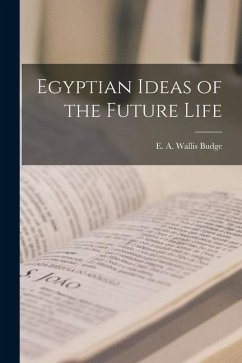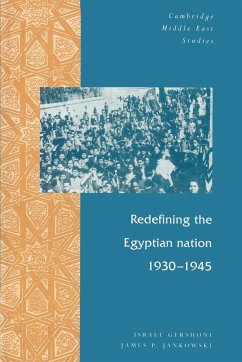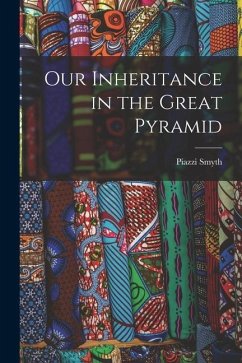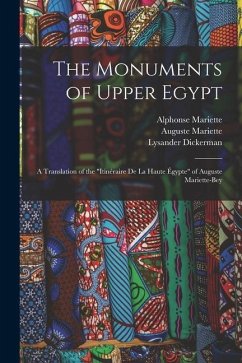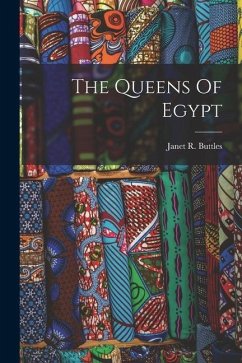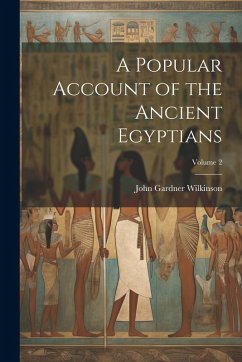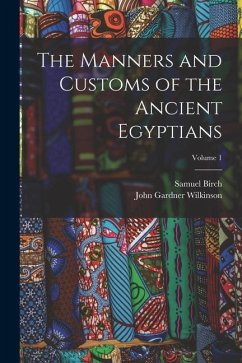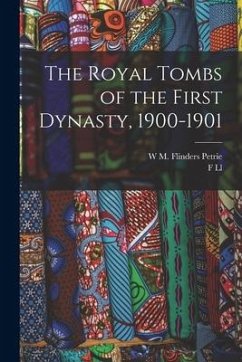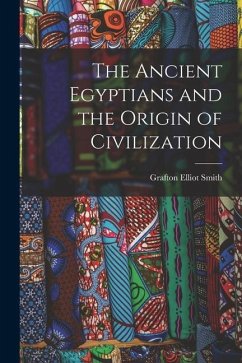
The Mamluks in Egyptian Politics and Society

PAYBACK Punkte
16 °P sammeln!
Distinguished scholars provide an accessible introduction to the structure of political power under the Mamluks and its economic foundations.For more than half a millennium the Mamluks - military slaves emanating from the steppes of southern Russia and later from the Caucasus and the Balkans - wielded power over Egypt. During this time they formed a remarkable political, military and economic elite, ruling as sovereigns from 1250 to 1517 and, after the Ottoman conquest of Egypt, regaining much of their former paramountcy under Turkish supremacy. In this collection of essays, Ulrich Haarman and...
Distinguished scholars provide an accessible introduction to the structure of political power under the Mamluks and its economic foundations.
For more than half a millennium the Mamluks - military slaves emanating from the steppes of southern Russia and later from the Caucasus and the Balkans - wielded power over Egypt. During this time they formed a remarkable political, military and economic elite, ruling as sovereigns from 1250 to 1517 and, after the Ottoman conquest of Egypt, regaining much of their former paramountcy under Turkish supremacy. In this collection of essays, Ulrich Haarman and Thomas Philipp have brought together the research of some of the most distinguished scholars in the field to provide an accessible and coherent introduction to the structure of political power under the Mamluks and its economic foundations. The essays also offer a unique insight into the Mamluk households and their relationship with the indigenous Egyptian population.
Review quote:
"This volume offers a valuable assessment of current scholarship." Warren C. Schultz, Religious Studies Review
"Both Richards and Hearmann debate rather eloquently..." Leonor Fernandes, MESA Bulletin
"...this book will doubtlessly appeal to Mamluk specialists." Christopher S. Taylor, Journal of the American Oriental Society
"Scholars of the Mamluk and Ottoman periods in Egypt will certainly want to become familiar with this volume, and specialists in other fields are likely to find papers of interest to them. For historians of the sultanate in particular, this volume will serve as a means to map the contours of a rapidly expanding field of study." International Hournal of Middle East Studies
"Raymond's article showcase sopisticated technical analysis of residential patterns in Cairo...The collection is a superb glance back at the traditional social analysis that has brought the field of Mamluk Studies to the forefront of Islamic history" Mamluk Studies Review
Table of contents:
List of illustrations; Preface; Part I. Mamluk Rule and Succession: 1. Literary offerings: a genre of courtly literature P. M. Holt; 2. Rank-and-file Mamluks versus amirs: new norms in the Mamluk military institution Amalia Levanoni; 3. Mamluk amirs and their families and households Donald S. Richards; 4. Joseph's law - the careers and activities of Mamluk descendants before the Ottoman conquest of Egypt Ulrich Haarmann; Part II. Mamluk Households: Coherence and Disintegration: 5. The re-emergence of the Mamluks following the Ottoman conquest Michael Winter; 6. 'Mamluk households' and 'Mamluk factions' in Ottoman Egypt: a reconsideration Jane Hathaway; 7. Personal loyalty and political power of the Mamluks in the eighteenth century Thomas Philipp; 8. The Mamluk beylicate of Egypt in the last decades before its destruction by Muhammad 'Ali Pasha in 1811 Daniel Crecelius; Part III. Mamluk Culture, Science and Education: 9. Mamluk astronomy and the institution of the Muwaqqit David A. King; 10. The Mamluks as Muslims: the military elite and the construction of Islam in medieval Egypt Jonathan P. Berkey; 11. The late triumph of the Persian bow: critical voices on the Mamluk monopoly of weaponry Ulrich Haarmann; 12. Concepts of history as reflected in Arabic historiographical writing in Ottoman Syria and Egypt (1517(?)1;1700) Otfried Weintritt; 13. Cultural life in Mamluk households (late Ottoman period) Nelly Hanna; Part IV. Mamluk Property, Geography and Urban Society: 14. The residential districts of Cairo's elite in the Mamluk and Ottoman periods (fourteenth to eighteenth centuries) André Raymond; 15. Patterns of urban patronage in Cairo: a comparison between the Mamluk and the Ottoman periods Doris Behrens-Abouseif; 16. Notes on the early nazar al-khass Donald P. Little; 17. Coptic festivals of the Nile: aberrations of the past? Huda Lutfi; 18. Marriage in the late eighteenth-century Egypt Afaf Lutfi Al-Sayyid Marsot; Index.
For more than half a millennium the Mamluks - military slaves emanating from the steppes of southern Russia and later from the Caucasus and the Balkans - wielded power over Egypt. During this time they formed a remarkable political, military and economic elite, ruling as sovereigns from 1250 to 1517 and, after the Ottoman conquest of Egypt, regaining much of their former paramountcy under Turkish supremacy. In this collection of essays, Ulrich Haarman and Thomas Philipp have brought together the research of some of the most distinguished scholars in the field to provide an accessible and coherent introduction to the structure of political power under the Mamluks and its economic foundations. The essays also offer a unique insight into the Mamluk households and their relationship with the indigenous Egyptian population.
Review quote:
"This volume offers a valuable assessment of current scholarship." Warren C. Schultz, Religious Studies Review
"Both Richards and Hearmann debate rather eloquently..." Leonor Fernandes, MESA Bulletin
"...this book will doubtlessly appeal to Mamluk specialists." Christopher S. Taylor, Journal of the American Oriental Society
"Scholars of the Mamluk and Ottoman periods in Egypt will certainly want to become familiar with this volume, and specialists in other fields are likely to find papers of interest to them. For historians of the sultanate in particular, this volume will serve as a means to map the contours of a rapidly expanding field of study." International Hournal of Middle East Studies
"Raymond's article showcase sopisticated technical analysis of residential patterns in Cairo...The collection is a superb glance back at the traditional social analysis that has brought the field of Mamluk Studies to the forefront of Islamic history" Mamluk Studies Review
Table of contents:
List of illustrations; Preface; Part I. Mamluk Rule and Succession: 1. Literary offerings: a genre of courtly literature P. M. Holt; 2. Rank-and-file Mamluks versus amirs: new norms in the Mamluk military institution Amalia Levanoni; 3. Mamluk amirs and their families and households Donald S. Richards; 4. Joseph's law - the careers and activities of Mamluk descendants before the Ottoman conquest of Egypt Ulrich Haarmann; Part II. Mamluk Households: Coherence and Disintegration: 5. The re-emergence of the Mamluks following the Ottoman conquest Michael Winter; 6. 'Mamluk households' and 'Mamluk factions' in Ottoman Egypt: a reconsideration Jane Hathaway; 7. Personal loyalty and political power of the Mamluks in the eighteenth century Thomas Philipp; 8. The Mamluk beylicate of Egypt in the last decades before its destruction by Muhammad 'Ali Pasha in 1811 Daniel Crecelius; Part III. Mamluk Culture, Science and Education: 9. Mamluk astronomy and the institution of the Muwaqqit David A. King; 10. The Mamluks as Muslims: the military elite and the construction of Islam in medieval Egypt Jonathan P. Berkey; 11. The late triumph of the Persian bow: critical voices on the Mamluk monopoly of weaponry Ulrich Haarmann; 12. Concepts of history as reflected in Arabic historiographical writing in Ottoman Syria and Egypt (1517(?)1;1700) Otfried Weintritt; 13. Cultural life in Mamluk households (late Ottoman period) Nelly Hanna; Part IV. Mamluk Property, Geography and Urban Society: 14. The residential districts of Cairo's elite in the Mamluk and Ottoman periods (fourteenth to eighteenth centuries) André Raymond; 15. Patterns of urban patronage in Cairo: a comparison between the Mamluk and the Ottoman periods Doris Behrens-Abouseif; 16. Notes on the early nazar al-khass Donald P. Little; 17. Coptic festivals of the Nile: aberrations of the past? Huda Lutfi; 18. Marriage in the late eighteenth-century Egypt Afaf Lutfi Al-Sayyid Marsot; Index.





